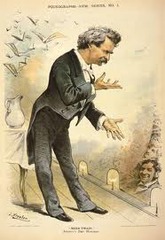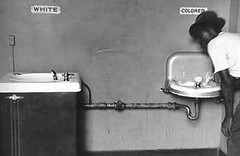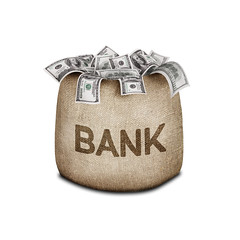| 5978048672 | People's (Populist) Party | An agrarian-populist political party in the United States. For a few years, 1892-96, it played a major role as a left-wing force in American politics. Drew support from angry farmers in the West and South and operated on the left-wing of American politics. Highly critical of capitalism, especially banks and railroads. Allied itself with the labor movement. |  | 0 |
| 5978048673 | assimilation | the process by which a person or a group's language and/or culture come to resemble those of another group |  | 1 |
| 5978048674 | social services | a range of public services provided by governmental or private organizations. Aimed at creating effective organizations, building stronger communities, and promoting equality and opportunity. Include benefits of education, health care, job training and subsidized housing |  | 2 |
| 5978048675 | consumer culture | consumption choices and behaviors made from a social and cultural point of view, as opposed to an economic or psychological one |  | 3 |
| 5978048676 | The Gilded Age | The late 19th century, from the 1870s to about 1900. Term derived from writer Mark Twain's 1873 The Gilded Age: A Tale of Today, which satirized an era of serious social problems masked by a thin gold gilding of economic progress. |  | 4 |
| 5978048677 | Social Darwinism | Term coined in the late 19th century to describe the idea that humans, like animals and plants, compete in a struggle for existence in which natural selection results in "survival of the fittest." Provided a justification for the enormous wealth and power wielded by industrialists in the latter half of the 19th century. |  | 5 |
| 5978048678 | Gospel of Wealth | An essay written by Andrew Carnegie in June of 1889 that describes the responsibility of philanthropy by the new upper class of self-made rich. |  | 6 |
| 5978048679 | Jane Addams | A pioneer American settlement activist/reformer, social worker, public philosopher, sociologist, author, and leader in women's suffrage and world peace. She created the first Hull House. Co-winner of 1931 Nobel Peace Prize. |  | 7 |
| 5978048680 | Plessy v. Ferguson | 1896 - Legalized segregation in publicly owned facilities on the basis of "separate but equal." |  | 8 |
| 5978048681 | racial segregation | the separation of humans into ethnic or racial groups in daily life. Generally applies to activities such as eating in a restaurant, drinking from a water fountain, using a public toilet, attending school, going to the movies, riding on a bus, or in the rental or purchase of a home. |  | 9 |
| 5978048682 | rebate | a return of a portion of the amount paid for goods or services |  | 10 |
| 5978048683 | free enterprise | an economic system that permits unrestricted entrepreneurial business activity; associated with laissez-faire capitalism |  | 11 |
| 5978048684 | trust | A set of companies managed by a small group known as trustees, who can prevent companies in the trust from competing with each other. |  | 12 |
| 5978048685 | plutocracy | government by the wealthy |  | 13 |
| 5978048686 | socialist | one who believes in the ownership and control of the major means of production by the whole community rather than by individuals or corporations |  | 14 |
| 5978048687 | radical | one who believes in fundamental change in a political, economic, or social system |  | 15 |
| 5978048688 | lockout | the refusal by an employer to allow employees to work unless they agree to his or her terms |  | 16 |
| 5978048689 | cooperative | an organization for producing, marketing, or consuming goods in which the members share the benefits |  | 17 |
| 5978048690 | anarchist | one who believes that formal, coercive government is wrong in principle |  | 18 |
| 5978048691 | tenement | a multi-dwelling building, often poor or overcrowded |  | 19 |
| 5978048692 | affluence | an abundance of wealth |  | 20 |
| 5978048693 | despotism | government by an absolute or tyrannical ruler |  | 21 |
| 5978048694 | sweatshop | a factory where employees are forced to work long hours under difficult conditions for meager wages |  | 22 |
| 5978048695 | pauper | a poor person, often one who lives on tax-supported charity |  | 23 |
| 5978048696 | tycoon | a wealthy businessperson, especially one who openly displays power and position |  | 24 |
| 5978048697 | prohibition | forbidding by law the manufacture, sale, or consumption of liquor |  | 25 |
| 5978048698 | filibuster | to utilize the technique of obstructing legislation by tactics such as making long speeches and introducing irrelevant amendments |  | 26 |
| 5978048699 | landslide | an overwhelming majority of votes for one side in an election |  | 27 |
| 5978048700 | reserve | in finance, the portion of money held back from circulation by a bank or treasury, which provides backing for its notes or loans |  | 28 |
| 5978048701 | bimetallism | the legalized concurrent use of two precious metals as currency at a fixed ratio of value; in US History associated with the Free Silver movement |  | 29 |
| 5978048702 | lobbyist | someone who promotes an interest or cause before a political body, often for pay |  | 30 |
| 5978048703 | concession | a privilege granted by a government to another government, private company, or individual |  | 31 |
| 5978048704 | nation-state | the modern form of political organization in which the government coincides exactly with a single national territory and population having a distinctive culture, language, history, and so on |  | 32 |
| 5978048705 | jingoist | aggressively patriotic and warlike |  | 33 |
| 5978048706 | atrocity | a specific act of extreme cruelty |  | 34 |
| 5978048707 | Civil Rights Cases of 1883 (a single decision on a group of cases with similar legal problems) | Legalized segregation with regard to private property. |  | 35 |
| 5978048708 | Wabash v. Illinois (1886) | Declared state-passed Granger laws that regulated interstate commerce unconstitutional. |  | 36 |
| 5978048709 | U. S. v. E. C. Knight Co. (1895) | Due to a narrow interpretation of the Sherman Anti-Trust Act, the Court undermined the authority of the federal government to act against monopolies. |  | 37 |
| 5978048710 | Plessy v. Ferguson (1896) | Legalized racial segregation in publicly owned facilities on the basis of "separate but equal." |  | 38 |
| 5978048711 | Frontier Thesis | stereotypical thesis that west represented individualism, democracy, economic freedom, and starting over https://o.quizlet.com/vQsdYvvy28WLQUKZ-8RtzA_m.jpg |  | 39 |
| 5978048712 | Land Grants | land given by government to universities and railroad companies |  | 40 |
| 5978048713 | Dawes Act | land given to individual Indians to discourage tribal mindset; encouraged Indians to farm for a living instead of communally owning land |  | 41 |
| 5978048714 | Bureau of Indian Affairs | designed to assimilate Native Americans (children particularly) into American culture |  | 42 |
| 5978048715 | Open Range | the idea that cattle can be grazed on large tracts of public and/or private property; invention of barbed wire ended this idea and drove many small cattle ranches out of business and off their small plots of land |  | 43 |
| 5978048716 | Vertical Integration | Strategy to maximize profits by attempting to own every step of the manufacturing process (ex. Carnegie Steel) |  | 44 |
| 5978048717 | Horizontal Integration | Strategy to maximize profits by attempting to purchase competing companies in the same industry; monopoly-building (ex. Rockefeller's Standard Oil) |  | 45 |
| 5978048718 | Knights of Labor | American labor organization in the 1880s led by Terence V. Powderly. Organized a wide range of workers, including skilled and unskilled, and had broad reform goals. |  | 46 |
| 5978048719 | Haymarket Riot | Labor dispute in Chicago that ended with a bomb being thrown at police resulting in many deaths. Led to an unfavorable public opinion of organized labor. |  | 47 |
| 5978048720 | American Federation of Labor | An organization of various trade unions that fought for specific reforms (as opposed to broad changes supported by the Knights of Labor). |  | 48 |
| 5978048721 | Homestead and Pullman Strikes | Industrial lockouts and strikes that showed battle between corporations and labor unions. Ended with government intervention on the side of big business. |  | 49 |
| 5978048722 | Urbanization | movement of people from rural communities and settlements to big cities |  | 50 |
| 5978048723 | "New Immigrants" | immigrants from southern and eastern Europe such as Poland, Italy, etc. that arrived in the US in the latter half of the 19th century |  | 51 |
| 5978048724 | Chinese Exclusion Act | First law limiting immigration based on race; effectively stopped immigration from China through the end of WWII. |  | 52 |
| 5978048725 | Political Machine | Unofficial political organization that works to win elections in order to exercise power; sometimes referred to as a shadow government; rose to power in the late 1800s because of ill-equipped local governments that failed to meet the needs of growing urban populations |  | 53 |
| 5978048726 | Tammany Hall | Political machine of New York City that was well-known for its corruption; lead by William Boss Tweed |  | 54 |
| 5978048727 | Pendelton Civil Service Act | Standardized an exam for federal employees so that people were awarded jobs on merit rather than political affiliations; also made it illegal to remove federal employees without just cause. |  | 55 |
| 5978048728 | Sherman Antitrust Act | Outlawed monopolistic business practices; not effective initially without a strong progressive federal government that would enforce it. |  | 56 |
| 5978048729 | Grange Movement and Farmers Alliance | Grassroots movements that attempted to address the plight of farmers in the late 1800s; attempted to regulate railroads and enlarge opportunity for credit; evolved into Populist movement. |  | 57 |
| 5978048730 | William Jennings Bryan | Democratic presidential hopeful that was a member of the Populist Party; free silver advocate; "Do not crucify mankind on a cross of gold". |  | 58 |
| 5978048731 | Seward's Folly | Secretary of State William Seward's negotiation of the purchase of Alaska from Russia in 1867. At the time everyone thought this was a mistake to buy Alaska the "ice box" but it turned out to be the biggest bargain since the Louisiana purchase. |  | 59 |
| 5978048732 | Susan B. Anthony | Social reformer who campaigned for women's rights, the temperance, and was an abolitionist, helped form the National Woman Suffrage Association. |  | 60 |
| 5978048733 | Laissez-Faire Economics | This was an economic philosophy begun by Adam Smith in his book, Wealth of Nations, that stated that business and the economy would run best with no interference from the government. This economic thought dominated most of the time period of the Industrial Revolution. |  | 61 |
| 5978048734 | New South | After the Civil War, southerners promoted a new vision for a self-sufficient southern economy built on modern capitalist values, industrial growth, and improved transportation. In reality, this growth was fairly slow. |  | 62 |
| 5978048735 | Americanization | Process of assimilating immigrants into American culture by teaching English, American history, and citizenship. |  | 63 |
| 5978048736 | middle class | a social class made up of skilled workers, professionals, business people, and wealthy farmers |  | 64 |
| 5978048737 | Interstate Commerce Act | Created the Interstate Commerce Commission (ICC) to regulate railroads to be fairer to farmers; first legislation to regulate corporations; ineffective because government failed to enforce it. |  | 65 |
| 5978048738 | Andrew Carnegie | A Scottish-born American industrialist and philanthropist who founded the Carnegie Steel Company in 1892. By 1901, his company dominated the American steel industry. |  | 66 |
| 5978048739 | transcontinental railroads | a railroad that would cross the continent and connect the East to the West; opened new markets and helped spur the Industrial Revolution |  | 67 |
| 5978048740 | Social Gospel | Late 19th-century movement Protestant movement preaching that all true Christians should be concerned with the plight of immigrants and other poor residents of American cities and should financially support efforts to improve lives of these poor urban dwellers. Settlement houses were often financed by funds raised by ministers of this movement. |  | 68 |
| 5978048741 | Standard Oil | John D. Rockefeller's company that gained a monopoly over the world petroleum market with the practice of trusts and swift elimination of competition. |  | 69 |
| 5978048742 | Carnegie Steel | A steel producing company created by Andrew Carnegie to manage business at his steel mills in the Pittsburgh, Pennsylvania area in the late 19th century. Significance: had a monopoly in the steel industry. vertical integrations. |  | 70 |
| 5978048743 | John D. Rockefeller | Wealthy owner of Standard Oil Company. Considered to be a robber baron who used ruthless tactics to eliminate other businesses. Built trusts and used money to influence government. |  | 71 |
| 5978048744 | Industrial Revolution | Period characterized by the rapid social and economic changes in manufacturing and agriculture that occurred in England during the late 18th century and rapidly diffused to other parts of the developed world. In the US, this occurred during the period roughly 1825-1925. |  | 72 |
AP US History Period 6 (1865-1898) Flashcards
Primary tabs
Need Help?
We hope your visit has been a productive one. If you're having any problems, or would like to give some feedback, we'd love to hear from you.
For general help, questions, and suggestions, try our dedicated support forums.
If you need to contact the Course-Notes.Org web experience team, please use our contact form.
Need Notes?
While we strive to provide the most comprehensive notes for as many high school textbooks as possible, there are certainly going to be some that we miss. Drop us a note and let us know which textbooks you need. Be sure to include which edition of the textbook you are using! If we see enough demand, we'll do whatever we can to get those notes up on the site for you!

